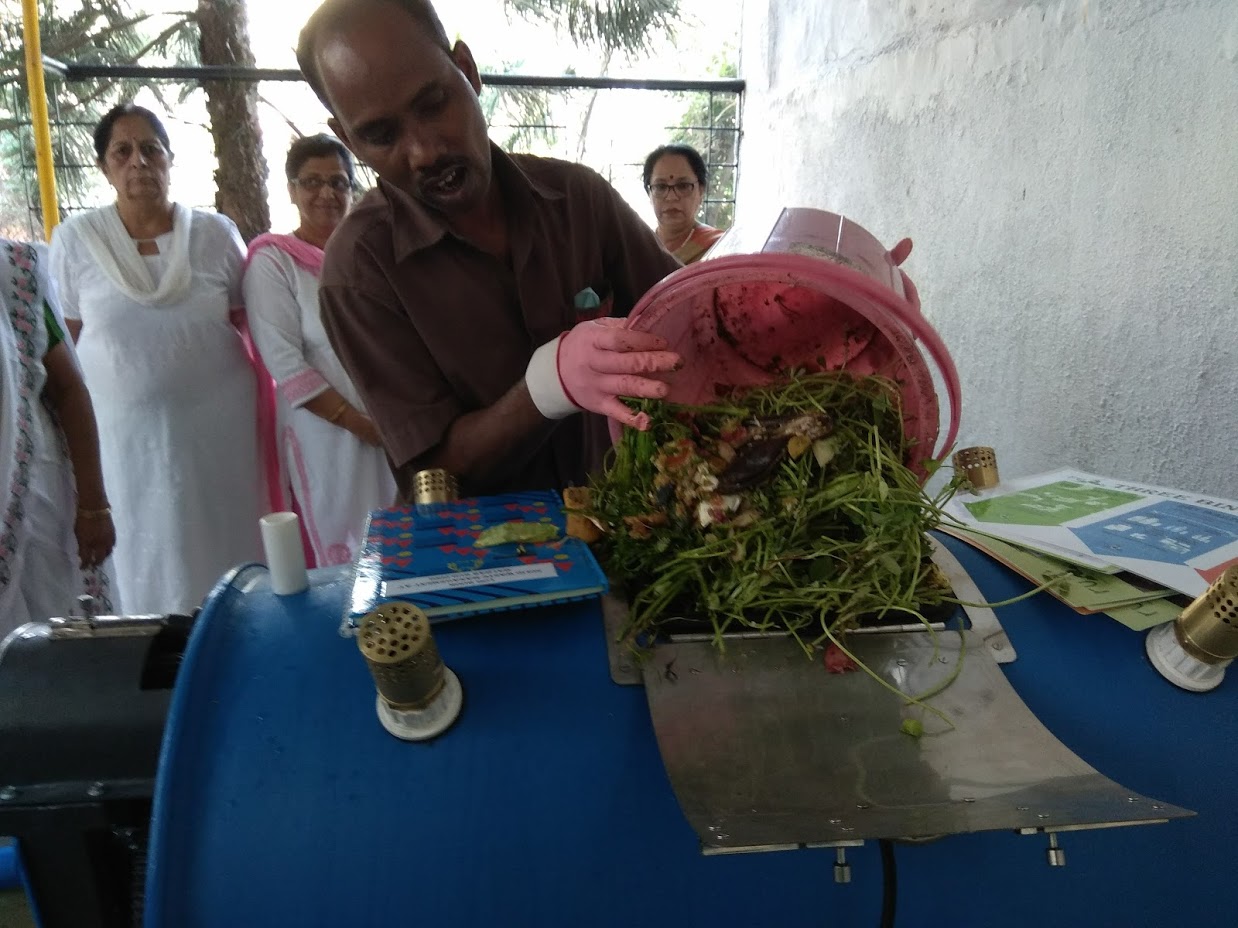More than four tonnes of wet waste recycled to produce 400 kg of compost in just one and a half years. Meet the residents of Goregaon-based Malhar Co-operative Housing Society (CHS) who are now enjoying the fruits of their labour. Quite literally.
The organic compost nourishes the society’s 350 sq ft vegetable and fruit garden!
Want to grow your own fruits and veggies in your urban garden? Here are some kits to help you!

“Some of the residents had been segregating their waste for the past few years. But it wasn’t until 26 January 2018 that all the 72 households in the society mutually decided to formalise this process. We wanted to reduce the waste that we sent to the Municipal Corporation and ultimately the landfills,” says HB Singh, a resident who was instrumental in spearheading the initiative.
So, in collaboration with city-based waste management experts, RUR GreenLife, the residents installed a manually-operated aerobic bio-composter unit. Priced at Rs. 1.5 lakh, the unit consumes zero-electricity and uses two drums with a storage capacity of 200 kg each to facilitate the natural process of composting.
The society segregates and recycles more than 90 per cent waste.
RUR-GreenLife (Are You Reducing Reusing Recycling) experts worked with the society for one composting cycle to train the housekeeping staff on operating and maintaining the system.
Explaining the working of the system, Singh adds, “Every household segregates its wet and dry waste. We generate about 30 kgs of wet waste per day. Of this wet waste about 15-20 kgs of wet waste is deposited in these drums alongside dry ingredients like leaves and sawdust.”
Then, after 18-20 days, the drums are rotated with the help of a gear. The processing of waste breaking down into compost takes four weeks.
Once the compost is ready, it is shovelled out, left to dry, cured and shaved.
The unit produces both liquid and solid compost. The society uses the liquid slurry to fertilise the vegetable-and fruit-garden that has different varieties of tomatoes, chillies, bitter gourd, and a few greens. The solid compost is packed in one kg packets and sold to the residents at Rs. 30 per kg.
The money from the sale of these packets is distributed to the housekeeping staff to keep the system running.
“The system has been running smoothly. We are delighted with the support shown by our housekeeping staff and RUR GreenLife to make it happen,” adds Singh.
Also Read: Earth Walls to Organic Food: Gujarat Couple Quits US Job to Create Food Forest!
Similarly, for dry waste, RUR GreenLife has asked the society to adopt the seven-bin system. In this system, the society segregates the dry waste in seven different bins like e-waste, paper, hard plastic, soft plastic, metal, glass and tetra pack cartons.
They sell the dry waste to recyclers or scrap dealers, and the income acquired is given to the housekeeping staff as an incentive.
The society also installed a bench made by recycling 10,000 Tetra Pak cartons under the ‘Go Green with Tetra Pak Recycling’ programme by RUR GreenLife and Tetra Pak India.
Having the system in place has helped the society mitigate 70 kgs of carbon dioxide usually generated every time the waste is taken from the collection point to the landfills.
Speaking to TBI, Monsha Narke, Founder, CEO, RUR GreenLife, says, “With over 70+ community composting projects like Malhar society, we are successfully recycling over 400 tonnes of biowaste annually into nutrient-rich organic compost to increase green cover in urban areas. It’s been a wonderful year and a half with Malhar and its green champions. It’s gratifying to see seasonal veggies and medicinal plants grown in the heart of the city using the compost generated from kitchen waste. We look forward to spread the green practices and replicate the Malhar model in many more communities.”
In a final message to the residents of other apartments and complexes, Singh says, “If we want to achieve the Swachh Bharat goal, each of us needs to contribute and start taking the lead in our societies. And managing our waste at source could be the starting point.”
All image credits: RUR GreenLife
(Edited by Saiqua Sultan)
Like this story? Or have something to share?
Write to us: contact@thebetterindia.com
Connect with us on Facebook and Twitter.
If you found our stories insightful, informative, or even just enjoyable, we invite you to consider making a voluntary payment to support the work we do at The Better India. Your contribution helps us continue producing quality content that educates, inspires, and drives positive change.
Choose one of the payment options below for your contribution-
By paying for the stories you value, you directly contribute to sustaining our efforts focused on making a difference in the world. Together, let's ensure that impactful stories continue to be told and shared, enriching lives and communities alike.
Thank you for your support. Here are some frequently asked questions you might find helpful to know why you are contributing?

